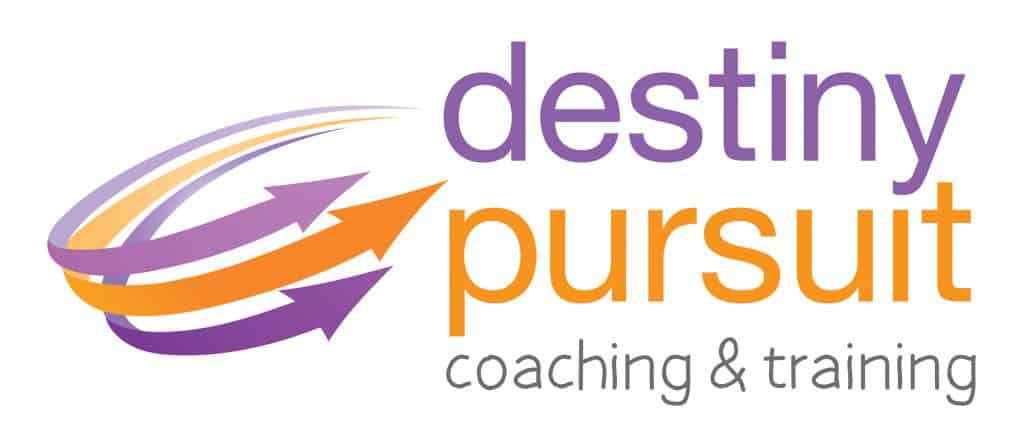Keys to an Achievable Outcome: Overview & Recap - NLP Matters, Episode #022

The Keys to an Achievable Outcome guide us as we develop a rich and deep understanding of the first of the Five Success Principles of Success - Knowing Your Outcome.
The Keys to an Achievable Outcome dive deeply into our desired outcome so we can have great clarity and do a robust check – is this goal really what we want? It provides a recipe we can follow that develops a very clear definition of the outcome we are going for and then we get to confirm that the goal is formulated thoroughly looking at it from all different angles or perspectives.
In this episode, we’ll draw together all the 9 Keys as we wrap it up and really get to see the power we have when using this NLP tool.
Listen to the podcast to learn more.
Listen to the Podcast
Here are some key takeaways from this episode:
- When you have a goal that is vague, you can easily get distracted or end up off track without noticing because you haven’t started with a level of clarity for the outcome.
- Looking at your goal from all different angles and perspectives provides us with multiple opportunities to notice if our commitment to our goal is aligned both consciously and unconsciously.
- You will find it harder to achieve your desired outcome when there is a misalignment between what you are consciously aware of and what you want, and things that operate at a level below consciousness, such as beliefs, values, and even your perception of your own identity.
- Setting a goal is not just about seeing something, deciding you want it, and working hard for it. These things are important, but it’s also about doing the analysis and reflection upfront.
- The more specific you are about your goal, the more you maximise the opportunity for your success because then, you can design your goals to align both your conscious and unconscious minds. Remember, our unconscious mind has to be convinced to get on board with our goal, and the unconscious plays a huge part in our success, so it pays to know as much as we can about how it operates and how it can support us or sabotage us in the pursuit of our goals.
The Keys to an Achievable Outcome are:
- Stating the goal in the positive
- Ask yourself: What specifically do I want?
- It is important to notice that this question is not asking about what you DON’T want. You'll know you have followed this key, when you write down your goal and words such as not, won't, can't, no, none, etc. do not appear.
- Similarly, comparative words like more than; less than; bigger; smaller; - words with “er” on the end are often comparing the current situation with a future or past situation. When these words are excluded from your goals then you can confirm that you have stated your goal in the positive.
- Specify the present situation
- Ask yourself: Where am I now?
- To answer this question, you want to be really present to your current state in contrast to what you will have and how you will be in the future. This means you are living within the present state – seeing it through your own eyes as you look down and can see your body and you can feel the feelings – both external and internal that this experience is associated.
- Specify the outcome in detail
- Ask yourself: “What will I see, hear, feel, when I have it?”
- This key brings our focus onto the sensory specific experiences you will have when you deliver successfully on your goal.
- When you write your goal, you also want to write it in present tense – as if it is NOW rather than in the future. Writing your goals in this way makes them very immediate and real. Once you have defined your goal in this way, you can then contrast it starkly against the present situation that the second key focused on.
- When you think about your goal, construct it as a picture of yourself in the future as you achieve the goal. In NLP, we call this disassociated. The important distinction to notice here is that when looking at your current state, you are associated, and when you think of achieving your goal, you are dissociated. The second key hones your focus onto the present state whilst the third key emphasizes your desired outcome. The stark contrast between the 2 really draws your attention to the gap between your positive goal and your current situation.
- Specify the evidence procedure
- Ask yourself: How will I know when I have it?
- This is a critical question answer. Lots of people who never get to celebrate their successes because they don’t know what it looks like when they have achieved their goal. They just keep going and going or they give up because there’s no end in sight. Part of looking after yourself is making sure that you celebrate success, so that then, you are really clear, you are getting to have what you aim to have.
- Check if the goal is congruently desirable.
- Ask yourself: What will this outcome get for me or allow me to do?
- A goal is congruently desirable when your conscious and unconscious mind are aligned and on the same page. There is no conflict with your values, your beliefs, and the outcome meets your needs.
- Ensure that the goal is self-initiated and maintained
- Ask yourself: Is it only for me?
- A lot of people take on goals that are not really theirs. We see this a lot with couples and business partners, where one person sets a goal and the other agrees to it because they think they “should.” It is totally possible for two people to have a shared goal, but when it originates from one person, we really want to be clear that this is a goal that we do share and that we really want.
- Sometimes people make goals when the outcome is not in their control. For example, parents who have goals for their children like, “I want my kids to be happy.” The problem with this goal is that, in the end, it’s not up to us whether our kids are happy or not. We could be the greatest parents in the world – and sometimes our kids are not going to be happy. And whether they are or not is up to them, not us!
- Ensure that the goal is appropriately contextualised
- Decide where, when, how, and with whom you want it. These questions are designed to get really specific about the context, or the situation surrounding your goal. The tricky part of specifying these answers is that they sometimes lead us into the realm of wishing, wanting, and hoping.
- You also want to ensure that the context overall is appropriate for the goal. Contexts do change over time. What may have been a perfectly appropriate goal now may not be in the context of the future. As the context changes, so must the goal.
- Identifying the resources you need
- Ask yourself: What do I have now, and what do I need to get my outcome?
- If there is a gap between the two answers, you need to get clear on how to go about closing the gap. Ask yourself: Have I ever had or done this before? Do I know anyone who has? Can I act as if I have it already?
- Identifying the resources needed to deliver on your outcome is critically important because, without this knowledge, you may not establish the support structure you need in order to achieve your goal. Remember, even though it is YOUR goal (in that it’s self-initiated and self-maintained), no goal or outcome is achieved totally on our own.
- It is equally important to recognise that at the outset you may not know all the resources/skills/capabilities you need to achieve your goal. This key does not give you a Stop At Go option where you refuse to take action until you have 100% certainty about everything that will be needed on the way.
- The value to be derived from applying this key is to reflect on whether in fact you may have already done this or something very similar before. Recognising this could mean you can apply what you learnt from the past and any insights you may have from that previous experience to your present goal, potentially saving you some time and effort on the way. Asking yourself if you know someone else who has done the same or a similar thing can give you access to their experience and insight.
- And finally, you can act as if you have what you need already. This is a particularly useful strategy when people are looking at other’s behaviour or character traits. Acting as if you have it up front (especially with emotional states) is not only the most efficient way to get an outcome. In many instances it is the only way!
- Ensuring that the goal is ecological
- Ecology encompasses the consequences or impact of any change that occurs through achieving our success. Answering a few questions on ecology can help you clarify whether this is a goal you really want to go for.
- First, you want to look at the purpose of the goal. Ask yourself: Why do I want this goal? What is the ultimate purpose of it? And, does this purpose match other purposes for my life and who I am as a person?
- With the following 3 questions, you can get to the heart of the ecology of your goal very quickly.
- Is it good for me?
- Is it good for others?
- Is it good for the greater good?
- Go to the Cartesian Questions that can really challenge you.
- What will happen if I get it?
- What won't happen if I get it?
- What will happen if I don’t get it?
- And, what won’t happen if I don’t get it?
- The ninth key in Keys to an Achievable outcome raises many really thought provoking questions that together enable you to confront and explore aspects of your goal that you would never otherwise have considered.
The Keys to an Achievable Outcome are pretty cool for making sure we have really considered our goals. We can see how they approach the goals we have from all kinds of angles, bringing different perspectives to our thinking and really magnifying the first Principle from the Five Success Principles - Knowing Your Outcome.
Applying the keys to an achievable outcome to examine our goal means that we can be certain that our outcome, our goal, is well aligned at both conscious and unconscious levels which means we really can become unstoppable.
Download your copy of the Keys to an Achievable Outcome template and use it bring these keys into your goal setting practice!
In the next episode, we’re going to start another very cool NLP tool focused on goals called the Well Formedness Conditions. This technique continues the work we have done so far on how to build a truly successful life as it follows on from Keys to an Achievable Outcome to provide a final check on the structure and formation of our goals.

Keys to an Achievable Outcome
Download your free worksheet here:
Listen to the Podcast
Joanne Clark
Joanne Clark is an Internationally accredited Master Trainer of NLP who has been delivering NLP training since 2011. Being on her feet in front of training rooms is where Jo loves to be and her passion for inclusive and immersive training that delivers outstanding learning outcomes is apparent to everyone in her training rooms. On average Jo delivers 140 days of training per year in addition to online webinars, guest speaker events and group coaching.
“NLP is at the core of all my training and coaching, it is at the core of who I am, how I interact and connect with people. I am absolutely passionate about spreading the NLP tools across the planet as I endeavour to support Robert Dilts’s vision of Creating a world to which people want to belong.” Joanne Clark
Certified Master Trainer of NLP; Master Practitioner NLP, Hypnotherapy & Matrix Therapies; Performance Coach; Cert IV Coaching; Advanced Practitioner in Coaching; Cert IV in Business; BA(Hons); Majors in Sociology and Psychology; Parent Education Leadership Training (PELT) Certificate; Mother of four children; Private Pilot (PPL); Diploma in Life Coaching


0 comments
Leave a comment
Please log in or register to post a comment